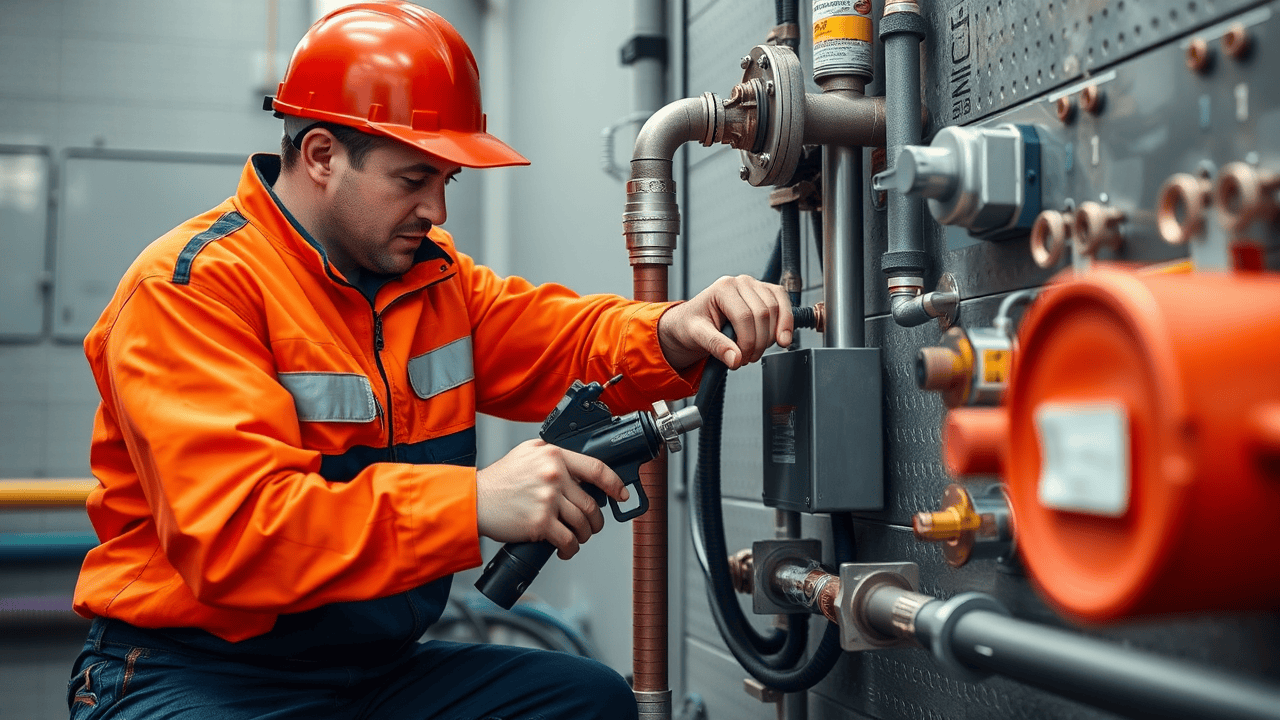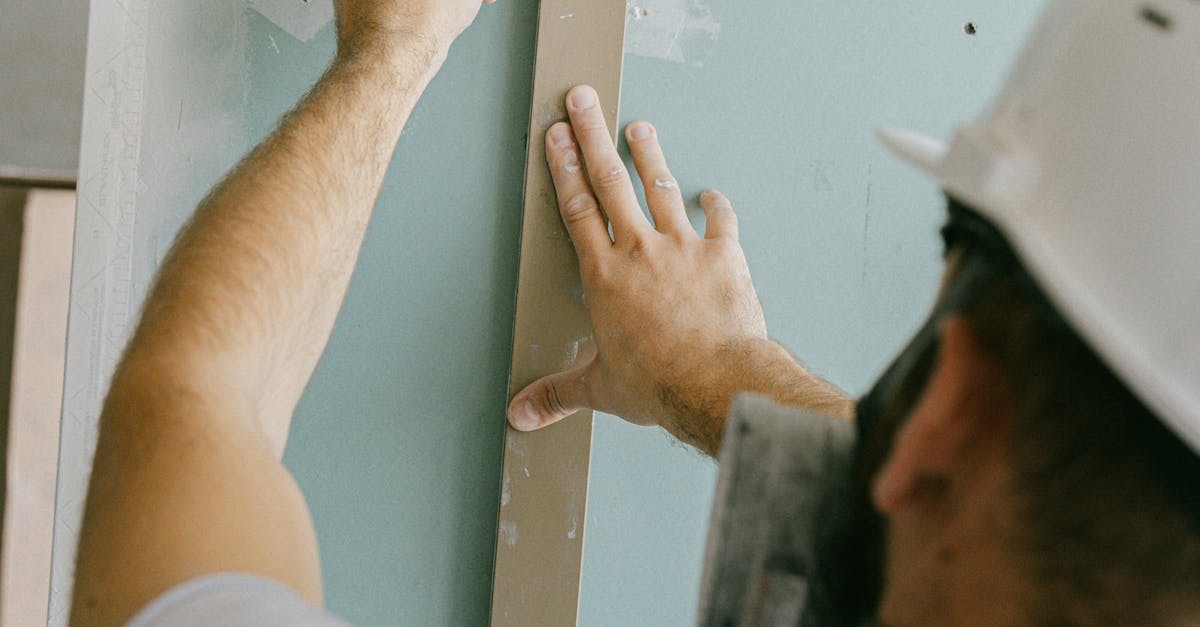
Professional Repair Services
When dealing with a broken gas line, it is crucial to seek professional repair services. Experienced technicians have the training and equipment necessary to handle potentially hazardous situations. They can quickly diagnose the issue, ensure safety protocols are followed, and perform the required repairs efficiently. Trusting professionals with gas line installation and repair in your area is essential to avoid any risks that come with improper handling.
Choosing the right service for gas line installation and repair in your home involves considering factors such as licensing, insurance, and customer reviews. Licensed technicians must adhere to local regulations and standards, providing peace of mind. Checking references and reviewing feedback can help ensure you select a reliable and skilled professional to manage your gas line concerns effectively.
Choosing a Qualified Technician
When selecting a qualified technician for gas line repair, it's essential to verify their credentials and experience. A licensed professional should have certifications specific to gas line installation and repair in your state. This ensures that they are knowledgeable about local codes and safety regulations. Checking online reviews and customer testimonials can provide insights into their reputation and service quality.
Additionally, asking for recommendations from friends or family can guide you towards a reliable technician. Make sure to inquire about their previous projects and whether they can provide references. A trustworthy technician will not hesitate to share their background and expertise in gas line installation and repair in your area. Ensure they have the necessary insurance, which protects both you and the technician during the repair process.
DIY Fixes for Minor Issues
Homeowners can often handle minor gas line issues with caution and the right tools. Simple problems like a loose connection can sometimes be fixed by tightening fittings or replacing worn-out hoses. Before attempting any repairs, ensure you turn off the gas supply to prevent leaks. Always use a wrench designed for gas fittings to avoid damaging the components during adjustments.
Gas line installation and repair in residential areas should be approached with respect for safety protocols. If a homeowner encounters a persistent odor of gas or an unusual hissing sound, seeking professional help is crucial. For temporary fixes, utilizing pipe sealants on minor leaks may help until a qualified technician can perform a thorough assessment of the system.
Temporary Solutions for Gas Line Problems
In emergencies where immediate repairs are not possible, temporary solutions can help mitigate risks associated with a broken gas line. Utilizing gas line installation and repair in temporary measures can create a safer environment until a professional can assess and fix the issue correctly. For instance, turning off the gas supply at the main valve prevents further leakage and minimizes hazards within the home.
Additionally, using rubber or silicone sealants can temporarily patch minor leaks for short periods. It's essential to remember that these are not long-term fixes. The importance of calling in professionals for comprehensive gas line installation and repair in the vicinity cannot be overstated in ensuring safety and compliance with local codes.
Understanding Gas Line Materials
Gas line materials play a crucial role in the overall safety and longevity of a gas system. Common materials used for pipes include steel, copper, and polyethylene. Steel pipes are often chosen for their durability and strength, while copper is valued for its resistance to corrosion. Polyethylene offers flexibility and ease of installation, making it a popular choice for outdoor or underground applications. Understanding these materials helps homeowners make informed decisions regarding maintenance and potential repairs.
Gas line installation and repair in residential or commercial properties requires a keen awareness of the characteristics and applications of different materials. Each type has distinct advantages and potential drawbacks that can impact performance. For instance, steel pipes can be prone to rust, while polyethylene requires careful handling to avoid damage during installation. Being well-informed about these materials aids in identifying issues early and maintaining safe gas operations.
Different Types of Gas Line Pipes
Gas lines are primarily constructed from different types of materials, each with its own characteristics and applications. Steel pipes are commonly used for underground installations due to their durability and ability to withstand high pressure. Copper pipes are also a popular choice, particularly for indoor applications, because they resist corrosion and can handle both high and low pressures effectively. Polyethylene is another option, known for its flexibility and resistance to environmental stress, making it suitable for both underground and aboveground applications.
When considering gas line installation and repair in residential or commercial settings, understanding the specific types of gas line pipes can guide proper selection. Each material has its own benefits and limitations, which can affect safety, efficiency, and longevity. It's important to consult with a qualified technician who can make recommendations based on the particular needs of the installation and local codes.
FAQS
Can I fix a broken gas line myself?
It is not recommended to fix a broken gas line yourself due to safety risks. Gas leaks can be extremely dangerous, and it is best to consult a professional technician for repairs.
How do I know if my gas line is broken?
Signs of a broken gas line include a strong smell of gas, hissing sounds near the line, dead or dying vegetation above the line, and an increase in gas bills. If you suspect a gas leak, evacuate the area and contact a professional immediately.
What should I do if I suspect a gas leak?
If you suspect a gas leak, evacuate the premises immediately. Do not use any electrical devices, light matches, or create any sparks. Once you are at a safe distance, call your gas provider or emergency services.
How can I choose a qualified technician for gas line repairs?
Look for licensed and insured technicians with good reviews and experience in gas line repairs. Ensure they have the necessary certifications and comply with local regulations.
What materials are used for gas lines, and how do they affect repairs?
Gas lines can be made of materials such as steel, copper, or polyethylene. The type of material affects the repair methods used, so it's essential to identify the material before attempting any fixes or hiring a technician.


